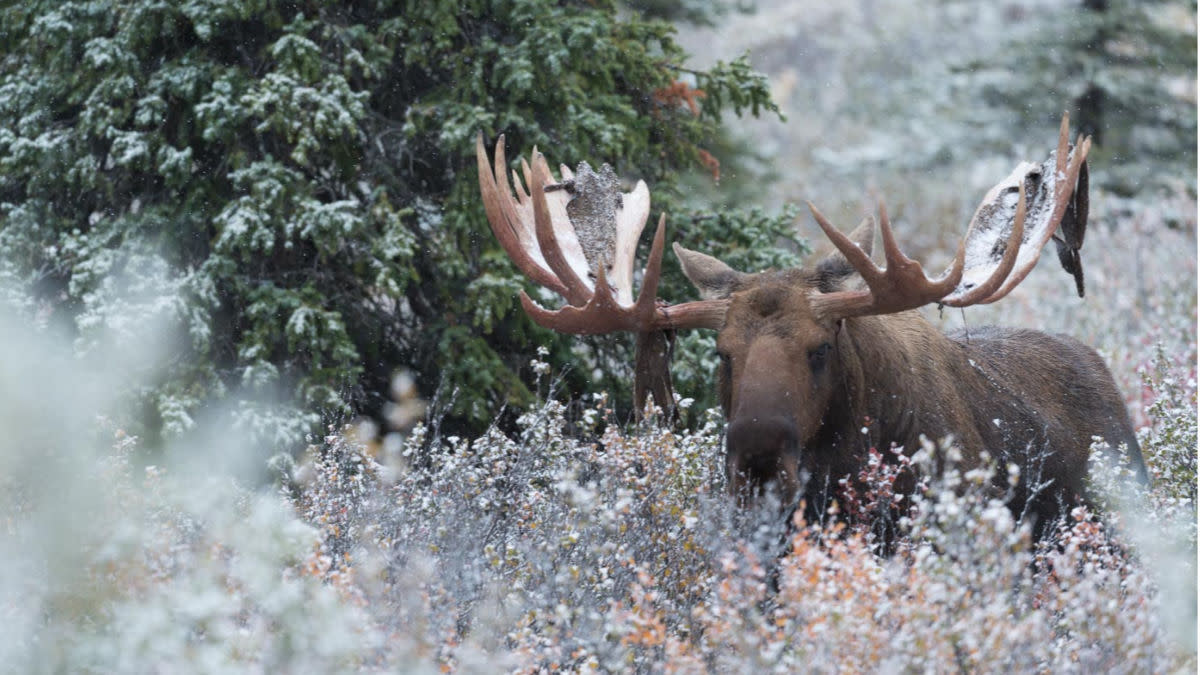
In our series Ask a Warden, we interview officers from across the country to learn about their role in protecting our game, fish, public lands, and other resources. In this edition, we asked officers from Oklahoma, Alaska, Kentucky, and Wisconsin about the highest scoring animals that they’ve ever seen poached.
As our friend Pat Durkin likes to say, “Deer make people stupid.” For some outdoorsmen, that means crossing a deep creek without waders or tenting out in uncomfortably cold conditions. For others, it’s illegally spotlighting a field of deer or shooting a buck out of season. Because of the latter, we need wardens like these.
Lieutenant Dru Polk | Oklahoma Department of Wildlife Conservation
“I’ve made several trophy deer cases over my career with a few reaching the 180s. However, my most memorable trophy animal I seized was a Boone & Crocket black bear scoring 20 7/16. This was prior to our current bear season in Oklahoma. We border Arkansas, which historically has always had a bear season. I located a bear baiting site on Forest Service lands within a wilderness area prohibiting all vehicle traffic, one mile into Oklahoma. I sat on this site during the opening day of the Arkansas season for 13 hours with a bottle of water and a piece of pound cake out of an MRE.
“Three bears visited my hiding spot, making it extremely difficult to stay unnoticed while watching the illegal hunter attempt to harvest a bear. These bears were extremely interested not in only the bait on the ground, which the suspect was hunting over, but also the stealthy warden hiding within camera distance behind a log with a ghillie suit on. They could smell me, but just couldn’t quite make me out!
“After 13 hours my persistence paid off as I observed the suspect harvest an illegal bear and transport it across state lines, resulting not only in state charges but also a federal Lacey Act charge. With the assistance of the Forest Service and Arkansas Game and Fish we received full prosecution and restitution, which at this time was the largest illegally killed and documented black bear in Oklahoma. The current state record stands at 20 15/16, only 8/16-inch bigger than the bear I watched get poached.”
Lieutenant Matt Dobson | Alaska Department of Fish & Game
“The highest scoring big game animal that I have seized was an Alaskan moose taken on the lower Yukon River in western Alaska. It scored near the 210-inch minimum for A-Y moose. I contacted the hunter with the moose while conducting an aircraft patrol during the early fall season. Because of the remote location, I had no communications with dispatch and initially cleared the hunter as being legal. I even congratulated him on being so squared away.
“It was not until I returned to my home base that I discovered the hunter had been revoked for wasting two moose a few years prior and was not eligible to hunt for five years. I flew back to the village and charged the hunter and seized the antlers and remaining meat.”
Lieutenant Greg Watts | Kentucky Department of Fish & Wildlife
“I’ve never scored any big game animals over the years. I always approached it as if size doesn’t matter. Whether I catch someone with illegal elk, bear, deer, or even fish, they’re all a big deal to me. Writing a citation for a short fish brings me as much pride as confiscating a big deer.
“Here in Kentucky we only recently added a trophy statue, which has changed how we approached big game animals and size. We now can enhance the fines through civil procedures.”
Lieutenant Robin Barnhardt | Wisconsin Department of Natural Resources
“The Wisconsin Department of Natural Resources and various citizen organizations have invested considerable time, effort, and money into reintroducing elk. Elk are native to here, but they were extirpated many years ago. One of the relocation areas is centered in Jackson County, which is where I work, in the west-central part of the state. Unfortunately, a big 6×6 bull elk was illegally shot and killed in neighboring Monroe County on the opening day of the 2018 gun deer season.
“The hunter made the difficult but ethical decision to self-report the incident to our violation hotline. Conservation wardens investigated and took appropriate enforcement action. DNR wildlife staff assisted with recovering the elk from the field and getting it to a meat processor. The meat from the elk was donated to a local food pantry.”
Feature image via Tony Bynum.



